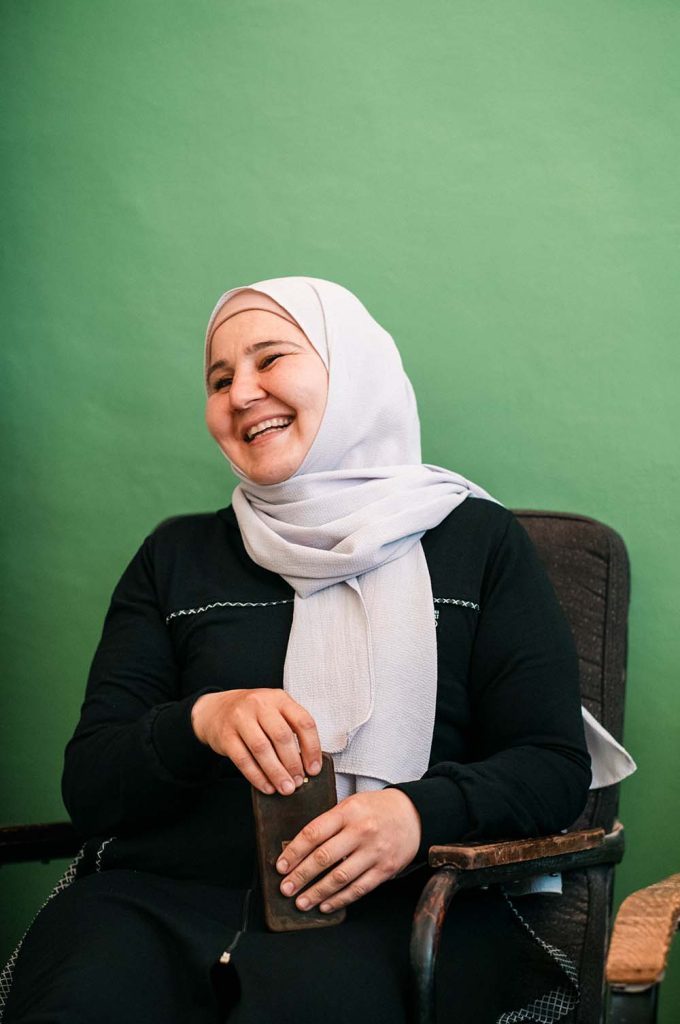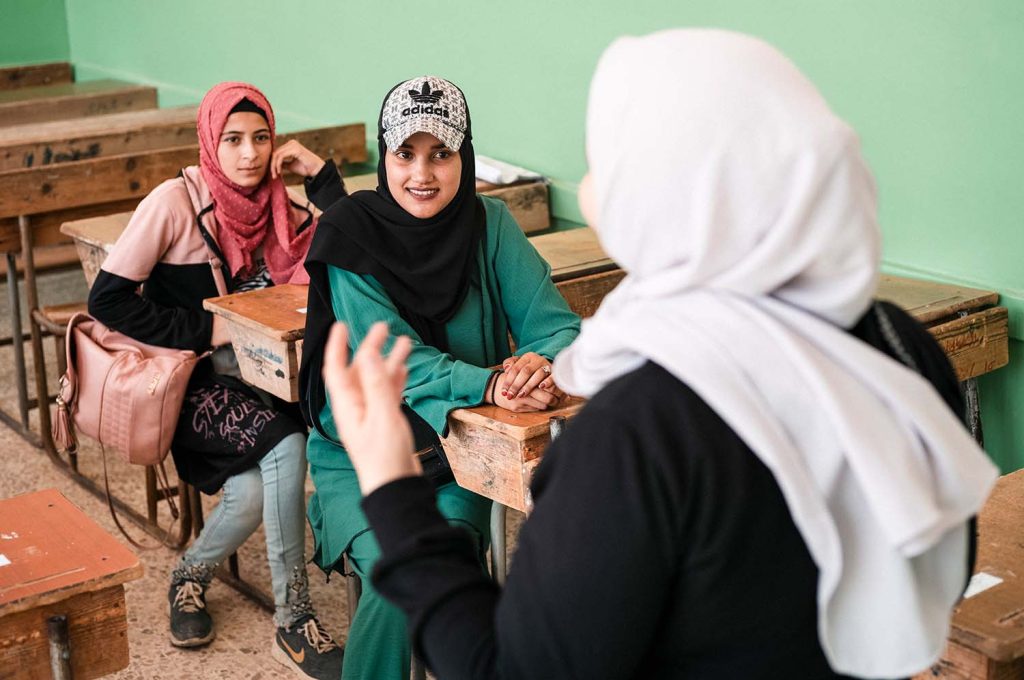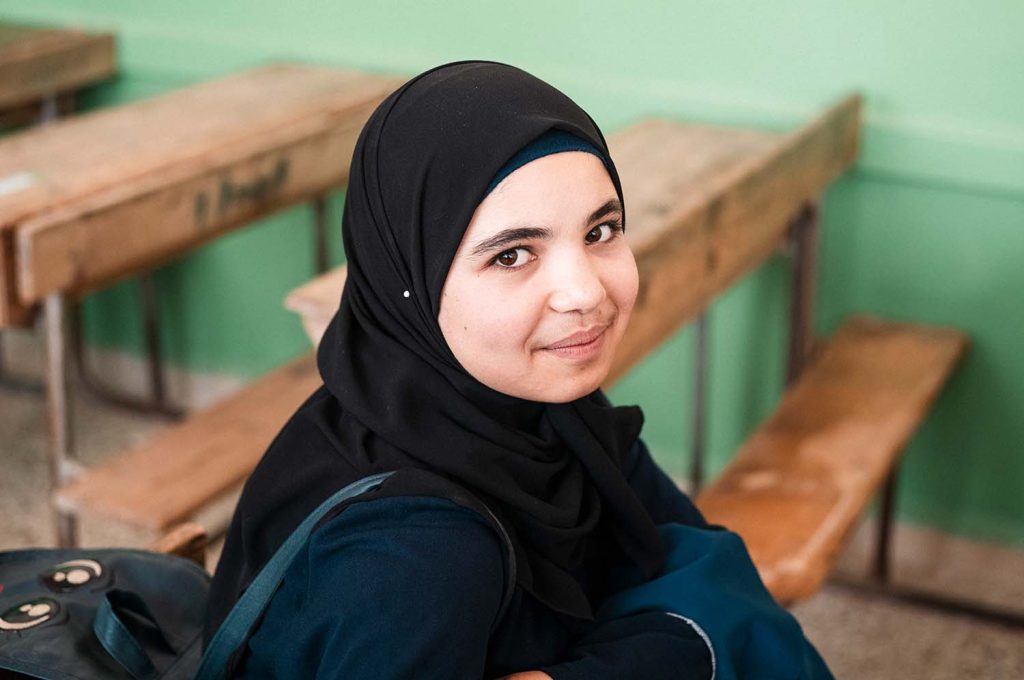The Women of Raqqa – Fighting for Their Right to Study
Aisha held secret classes. Amina studied in them. Nour is prepared to wait for hours at checkup points to finish tests. The women of Raqqa are doing whatever they can to fight for a better future.
THE CITY OF RAQQA in Northern Syria, along with its surrounding regions, were once known as a modernized region, receiving a flood of industrial investments, with an orientation towards the future. The adults had a good education; the children studied in schools to obtain one.
In 2013, the terrorist organization ISIS took over and placed heavy limits the way the people of Raqqa, particularly the women and girls, moved and dressed. The terrorists seized farmers’ crops and merchants’ goods, thus also seizing locals’ way of life.
However, the greatest enemy the terrorists faced was education. From the get-go the terrorist organization closed the schools of the areas, turning them into bases, prisons, and torture centers. Boys were recruited to fight, teachers were made to apologize for teaching ; but the girls had the worst fate, as ISIS organized training sessions on how to offer their bodies to terrorists.
Currently, Finn Church Aid is operating in the countryside of Raqqa, which the terrorists left in 2017. The region has over a hundred schools damaged in battle with tens of thousands of students. Many have had their school life interrupted for as long as ten years. The various parties to the conflict still patrol the area, and going through checkpoints makes life hard for schoolchildren.
There is light at the end of the tunnel, however. Locals, including girls and women, have been able to return to school. This story features a trio of survivors from Raqqa.
Aisha held secret school classes as a teacher during ISIS, participated in FCA training during her escape, and returned to her home region to become a principal.
“Previously, the women of Raqqa were active members of society, involved in politics. We lived our own lives and, like me, could move alone to a university town for studies.
The terrorists know about the power of teachers, and they certainly tried to win the teachers over to help them get young girls to molest. Thinking about what they did to us still gets me raving mad.

There are more than one hundred schools in the rural area in which FCA operates. Aisha is one of the female head teachers. About 75 per cent of the teachers are women.
At the start of ISIS’s reign of terror, we tried to continue our work, until we understood that they were sending their members to our classes to report to their leaders what we were teaching. As a countermeasure we locked the school doors, but they broke the locks and interrupted our studies. Next, they took the study materials.
Halfway through 2014, the only thing I could do was continue instructing my students at my home. We had several female teachers, and we organized a school secretly at my house for four months. We organized teaching in shifts, with approximately a hundred children participating. When our work was revealed, the terrorists arrested me and interrogated me.
I fooled them and said that I only instructed the children Arabic and the Quran instead of English, French and natural sciences. They were enthusiastic about this, asked me to continue and promised they would deliver suitable study materials. After interrogation I packed my bags and escaped from the city to the countryside – they never caught me. I left
the Raqqa area in 2015, escaping at the last moment. After the night I left, ISIS announced that women under 50 were under curfew and locked up in their houses.
I spent the next years in the Hama countryside, a scene of many battles. During the worst ones I could not teach at all. Then, I found out FCA had started operating in my area, organizing school repairs and activities for the students. I participated in teacher training, a particularly important experience for me, learning about offering psychosocial support and new study methods, like giving the students group work. My students’ critical thinking skills improved, allowing them to focus on their studies better.
Before the war, my students made plans for their future, but during the reign of ISIS, the only thing the kids worried about was their own safety. Girls married young and had children, leaving us a huge burden as education experts. We are still trying to change the thought patterns of the girls who lived during the ISIS era to understand that getting an education is worth it. ISIS taught these girls to get married and start a family – we are teaching them to go to university and build a new future.
After three years, I returned to the Raqqa countryside to become the principal of this school. It is a personal decision not dwell too much on the war years. Regarding the past, I only wish to remember the times before 2010 and after 2023. The rest of it is not worthy of my attention.”
Nour, 18, travels from the Kurdish zone through 20 checkpoints to a school supported by Finn Church Aid to participate in her final exams.
“My first memory of ISIS? When they prevented us girls from going to school and forced us to cover our faces. I was in the second grade. We lived here, under the rule of ISIS, for two years, until my dad found a smuggler who took us to Hama. In there I continued my schooling in the second grade. It was weird, as I was older than other students, and taller by a head’s length.

18-year-old Nour (in the middle) had to pass through 20 checkpoints to make it to final examinations. She and her sister take turns to go to school every other year.
We returned to the Raqqa area in 2021. Me and my sister are of different ages, but due to breaks in my education we are both going to the ninth grade. I should really be three years further in my studies. My father does not have enough money to send us both to school, meaning we have taken turns to go through the school. First, my sister continued her education, now it is my time, and my sister has prepared me for the national exams.
I live in the Kurdish zone without a public school. I woke up early in the morning and travelled here to participate in my finals. Normally this trip takes me half an hour, but it can also take as many as six hours now. There are 20 checkpoints along the way, asking a lot of questions and inspecting personal IDs.
I spent this morning afraid I could not make it through the checkpoints in time. In that case, I could not have made it to the final exams and would have had to remain out of school for a year. All this trouble – I go through it just to get a Syrian final certificate from school.
I want to finish my education but also fear that my family’s financial situation will prevent it. I find the higher-grade tests challenging. I need a real teacher – just studying with my sister is not sufficient. Travelling between different regions is also expensive and takes its toll.
During the rule of ISIS, girls married at 13–15, and this became normalized. I am now 18 years old and already feel too old to be wanted. I want to continue my studies, and my father fully supports me. He does not want to marry too young.”
Amina, 14, went to a secret school held by her dad, but only learned to count and write years later. Now she is one of the best students at her school.
“I do not think I had a broken childhood. ISIS came when I was four. Those were bad, frightening times, times when we could not sleep at night or go out with my mom due to being female. When we needed something from the markets, my dad had to go out and get it.
When terrorists finally left the Raqqa area and I could start my schooling, I was 8. I could not write or count, but my father, who is a teacher, supported me. Even during the ISIS rule, my dad tried to teach me and my neighbors’ children in secret. ISIS found out and threatened my father over it. They also tried to force my dad to send them to one of their ”schools,” but my dad was very strictly against it.
I was eight years old when the terrorists left. I have worked hard to make up for the gaps in my education since then. Just this morning, I participated in the national test for the ninth graders despite being younger than the others. I am an excellent student – one who is always getting the best grades.

When terrorists finally left the Raqqa area and I could start my schooling, I was 8. I could not write or count, says 14-year-old Amina.
I will continue my studies, and I am ready to walk to the nearest girls’ high school even if it takes 45 minutes to get there. In the future, I want to train myself to be a pediatrician to help kids who have gone through war. And I want to remain in the vicinity of Raqqa – this is my home.”
Text: Ulriikka Myöhänen
Photos: Antti Yrjönen
Translation: Tatu Ahponen
Finn Church Aid is repairing damaged schools in Raqqa and supporting students and teachers with cash grants. Among those receiving grants are teachers and students travelling to school finishing exams from the Kurdish area. The work happens together with the Syria Humanitarian Fund, under the UN.